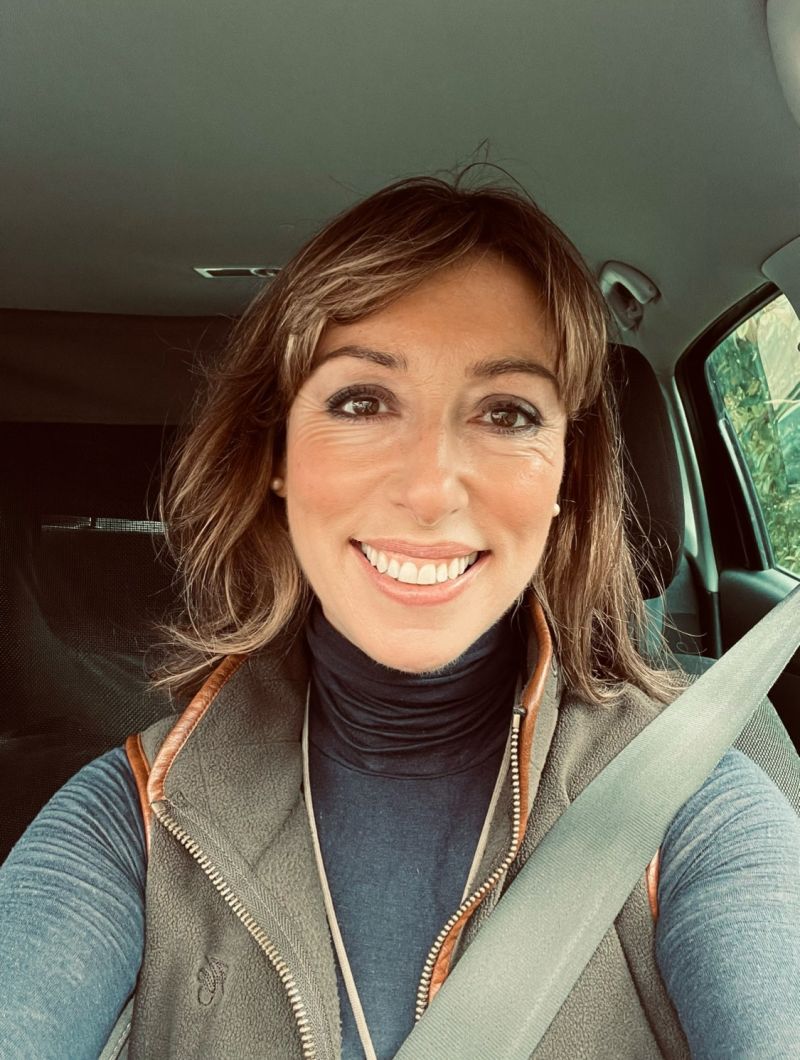Guy Ritchie: 'My mother married an impoverished aristocrat with a knackered country pile. I've been chasing that dream ever since'
The film maker opens up about his love for the countryside, and his friendship with Sir David Beckham.

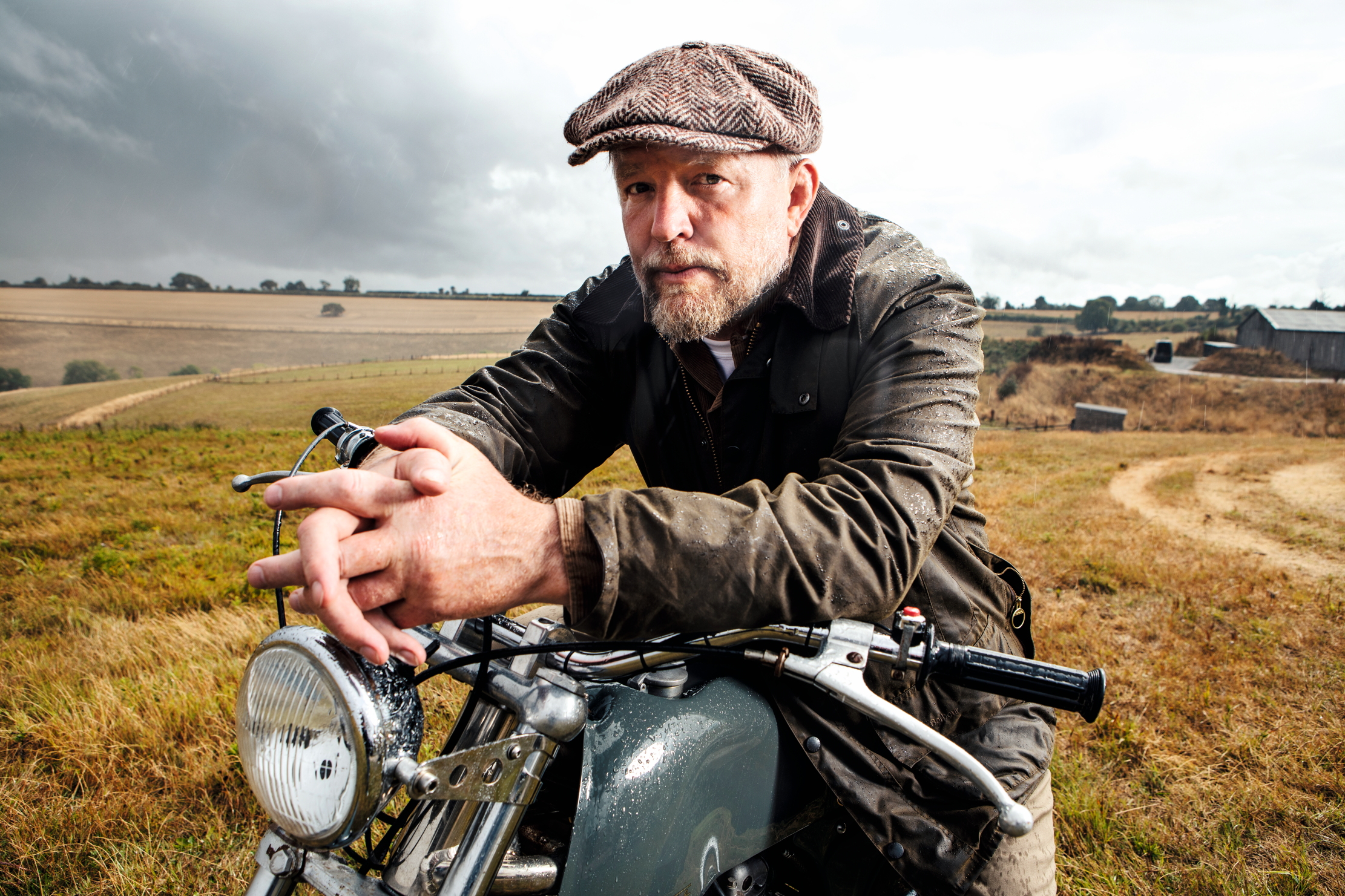
'I much prefer talking to being photographed,’ states the film director, producer and screenwriter Guy Ritchie. We’re sitting on two large sofas facing each other in the Studio — once used by Cecil Beaton, Rex Whistler and Salvador Dalí — which was converted from the former stables in the 1930s, a few hundred yards from the red-brick Georgian manor house at Ashcombe, his Wiltshire estate.
As it turns out, this will be the least surprising observation that Guy makes all day, because the 57-year-old is a man with much to say on a variety of topics. ‘Don’t get me talking about country life,’ he warns. ‘I could bang on forever.’
Not that this was always the case. ‘In my youth, I was an urbanite, born and raised in London,’ he clarifies. ‘However, I used to go fishing with my father on the River Nadder, about five miles from here. I was obsessed with fishing — it can be profound. It’s the endless pursuit of the potential of snagging your quarry that the imagination is allowed to fantasise about. The fish is obtainable, but only just.’ For Guy, there’s a ‘correlation between my love of the countryside and fishing. Yet, back then, there were only glimpses of it and I went back to my urban life’.
Things changed after his parents’ divorce when he was five. ‘My mother married an impoverished aristocrat with a knackered country pile, which was the best thing ever,’ he recalls. ‘It was my escape and I’ve been chasing that dream ever since.’
His schooling was not, by any means, a success: ‘I went to about 10 schools and I was appalling at all of them, even the ones designed for those with dyslexia.’ By 15, he had left: ‘I wasn’t badly behaved, I just didn’t understand anything about the intellectual pursuit and I did not get it until the day I left.’
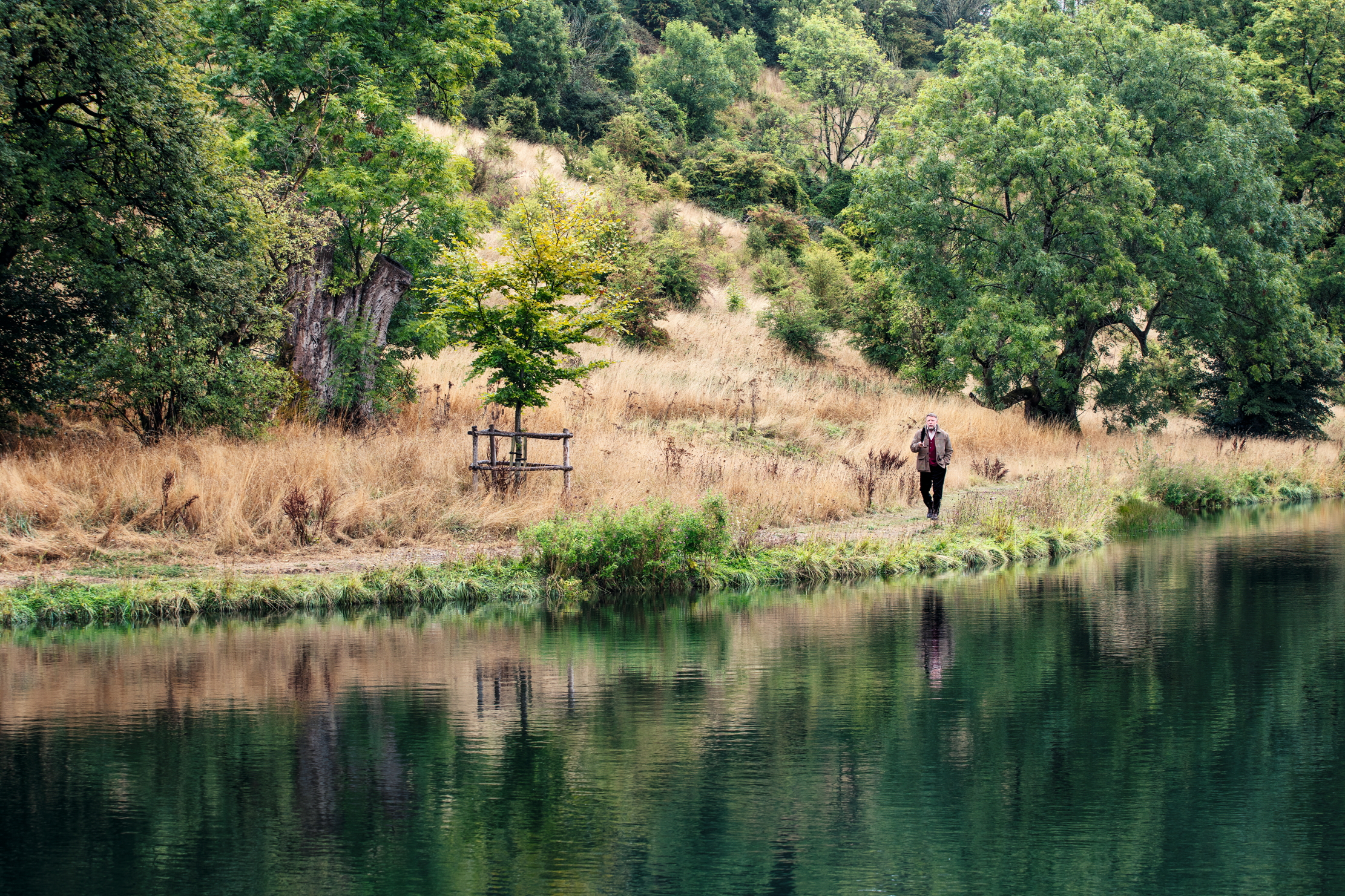
'When I was a child, I wanted to be a gamekeeper: I was fascinated with their immersion in life, death and everything in between'
As with many for whom education was challenging, Guy feels that, ultimately, the experience helped to drive the creativity he now perpetually draws on in his filmmaking career. ‘Ironically, my hatred of school probably led to an infinite curiosity in creativity that has developed as I’ve gotten older.’
By his own admission, he ‘lived a rather colourful life between the age of 15 to 25’. He attained a GCSE in film studies — ‘the only qualification I have’ — and, in 1995, got a job as a runner, quickly progressing to directing commercials and promotional videos for bands. ‘My two principal interests are narrative and identity and how the two correspond,’ he explains. ‘At first, I was in advertising, then reverted to my primary interest in cinema, because it satiates so many creative departments: architecture, production design, art direction, costume, narrative and identity.’
Exquisite houses, the beauty of Nature, and how to get the most from your life, straight to your inbox.
A mere three years later, Guy was riding the crest of a crime-gangster wave with the successful release of his first feature-length film, Lock, Stock and Two Smoking Barrels. With an ensemble cast that included long-time collaborators Vinnie Jones and Jason Statham — ‘they are like brothers to me. Vinnie was forever paying for taxis when Statham and I had no money’ — the film reignited Guy’s desire to buy a home in the countryside. ‘Up to that point, I couldn’t see any version of a rural identity; because, if you’re in my game, you had to be in London and you couldn’t afford a country house and a townhouse. Until you had enough money to acquire both, there was no ability to make that a reality. However, the fantasy — when I was a child, I wanted to be a gamekeeper: I was fascinated with their immersion in life, death and everything in between — was still in me in a dormant sense and it came back as soon as I had money.’
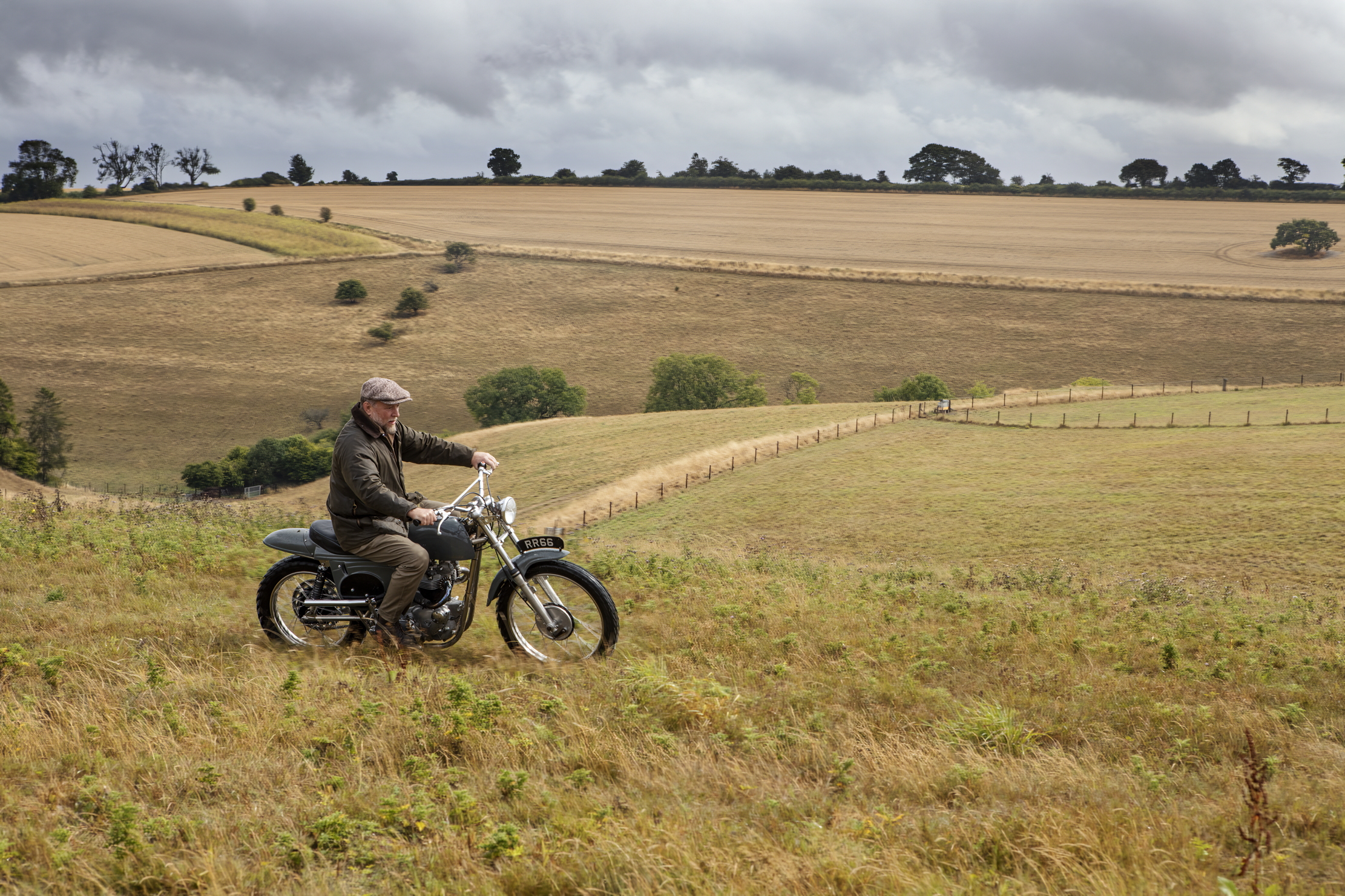
'The Beaton connection didn’t mean much then, but it has developed over time. The house is famous for people falling in love with it'
In 2001, he viewed and purchased Ashcombe. As a fellow creative soul, was he influenced by the photographer and designer Beaton (who rented it from 1930–45) and the Bright Young Things’ relationship with the house? ‘No, I had been looking for two or three years and it ticked so many boxes,’ he admits. ‘The Beaton connection didn’t mean much then, but it has developed over time. The house is famous for people falling in love with it.’
Indeed, Beaton was so enamoured at first sight that he recalled in Cecil Beaton At Home: ‘None of us uttered a word as we came under the vaulted ceiling and stood before a small, compact house of lilac-coloured brick. We inhaled sensuously the strange, haunting — and rather haunted — atmosphere of the place. I was almost numbed by my first encounter with the house. It was as if I had been touched on the head by some magic wand.’
Quite so, as the Grade II-listed eyrie has seemingly since cast the same spell over its present incumbent, who lives between here and London with his wife, Jacqui, a poet, and their children, Rafael, Rivka and Levi. His sons, Rocco and David, from his first marriage to Madonna, visit regularly, too. ‘I never thought I was going to get this and it’s taken 25 years for it to dawn on me that I do actually live here,’ he confesses. ‘This place has exceeded my wildest fantasies.’
For Guy, however, the allure of Ashcombe (so-called, thanks to its proliferation of ash trees and deep combes or valleys) not only lies in the charm of the modest house, but also the manner in which it sits within its surrounding 1,100 acres of curvaceous chalkland. ‘It’s as if the landscape is holding it in an embrace,’ he muses. ‘Really, I didn’t need a country pile, I wanted a cottage. I was more in love with the keeper’s life than that of an aristocrat. I have a great love of historic English country houses, but I had no desire whatsoever to reside within one.’
The scattering of wooden cabins across the estate, often next to manmade lakes (a Ritchie and a Beckham speciality), attest to his inclination towards smaller residences. ‘I could live in a cabin,’ he says, having taken us to the waterside retreat pictured in the opening spread of this article, which was modelled on the US President Abraham Lincoln’s first home. ‘There’s an endless discussion between living in a cabin on a lake or living in the main house,’ he reveals. ‘I’m a big fan of small environments done well, rather than big ones done badly.’
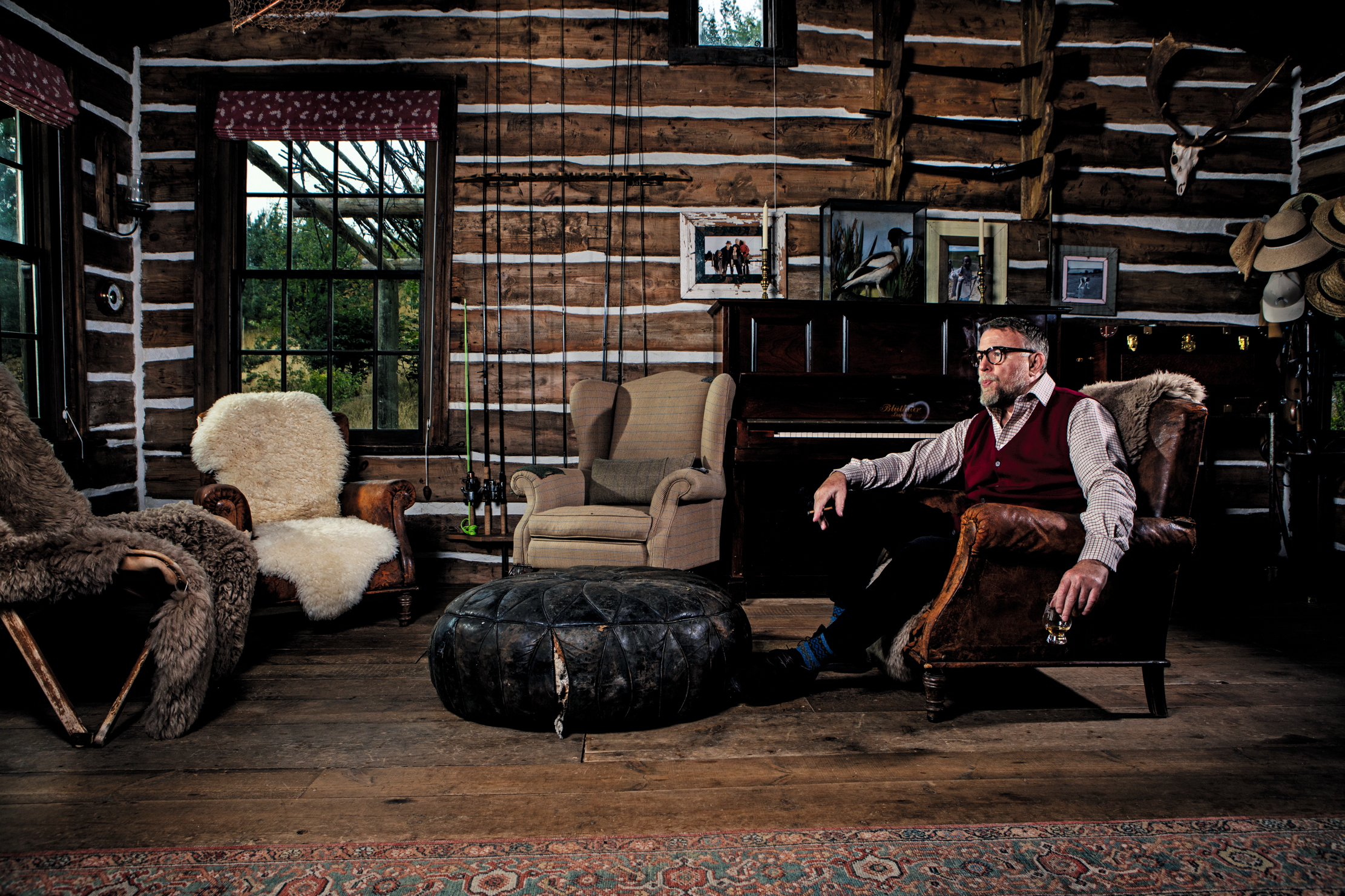
'My job is a fusion between all sorts — one of which is instinct: not to overthink, but to think enough'
This desire for a simple life in a manner that can be easily packed up and moved to another location appears to stem from the film sets he and his team are constantly constructing and dismantling. ‘I build villages and towns and destroy them when I make a movie, which seems like a crime, and that has led to a fascination with architecture and the efficiency of building,’ he says. ‘If you’re going to build something, it not only has to look right, but it has to last and be erected quickly. This cabin was built by a production designer and can be taken apart in a day.’
It is no surprise to learn that the director is very clear about what he does and does not like and that he has a highly attuned eye for detail. It’s a concept he is passionate about, through the WildKitchen tented outdoor barbecue and seating areas that he perfected — after 38 prototypes — for his Cashmere Caveman Co, not to mention the range of handsome rosewood campaign furniture he has designed. ‘I like the idea of being a nomad, but with a sense of permanency, once you put down your anchor. Then, if you wish, you should be able to lift it up and move again.’
It’s a theory that his great friend Sir David Beckham understands, having had to move so much throughout his life when playing for high-profile international football clubs. ‘I first met him in Los Angeles, when I was doing a commercial with him in a pair of underpants about 15 years ago,’ Guy recalls with a smile. ‘We clicked straight away, because we’ve both got a touch of OCD about us. He’s a great manifester and curator and, like me, he’s spectacularly detail orientated.’
Expressing an admiration for how hard Sir David works, both now and during his career on the football pitch, he acknowledges: ‘No one should underestimate how significant an athlete he is — he’s superhuman.
And, if he wants something, he’s prepared to work for it. He appreciates the countryside in a way that few people do,’ he adds. ‘We are quite competitive, in a good way, and he has introduced me to a lot of things in the way that I have done for him, too — there’s this game of ping-pong, between his ideas and mine — even if I do now have serious chicken envy!’
The pair share an appreciation of fine wine and whisky and Guy has recently collaborated with the Chase family, which has launched Rosemaund, an English malt whisky named after its Herefordshire farm.
In the meantime, Guy is continually busy with at least three film projects a year, each of which takes at least three years to complete. ‘I think my work is becoming more meaningful,’ he professes. ‘And I’m more, not less, prolific, through a growing enthusiasm and curiosity for certain principles. I enjoy seeing projects through from inception to manifestation. Experience means a lot. My job is a fusion between all sorts — one of which is instinct: not to overthink, but to think enough.’
The second series of Mr Ritchie’s Netflix series ‘The Gentlemen’ is being filmed now.
Staying at Ashcombe estate, Tollard Royal, Wiltshire, costs from £1,000 per person, per night
An experienced journalist, Paula Minchin, Country Life's Managing & Features Editor, has worked for the magazine for 10 years — during which time she’s overseen two special issues guest-edited by His Majesty The King in 2013 and in 2018, and the bestselling 2022 edition masterminded by his wife, Queen Camilla. A gamekeeper’s daughter, Paula began her career as a crime reporter on The Sidmouth Herald in Devon, before becoming Pony Club & Young Rider Editor, then Racing Editor, at Horse & Hound. Paula lives in Somerset with her two working Labradors, Nimrod and Rocky.
